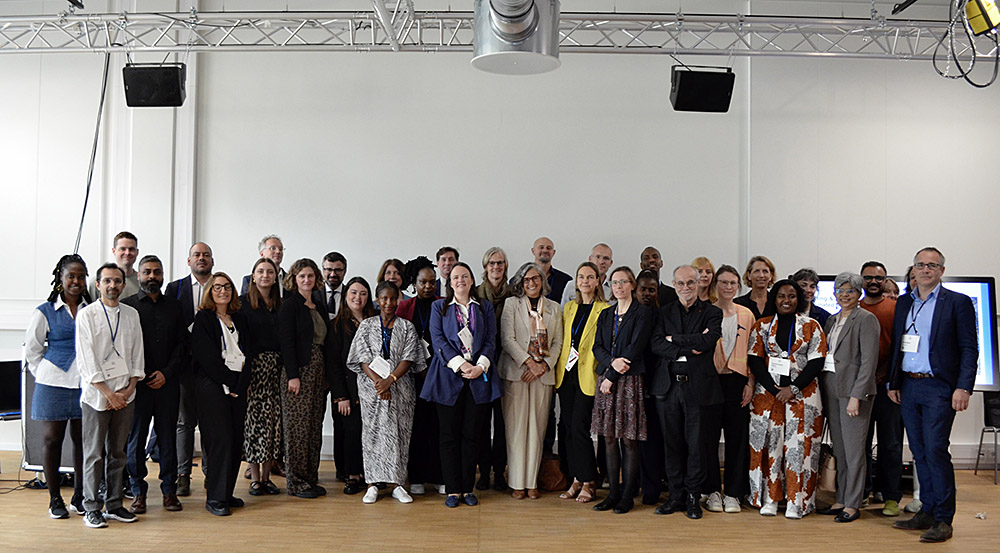The Hamburg Sustainability Conference 2025 focused on accelerating progress toward the SDGs by fostering renewed cooperation and practical solutions. The event, held from June 2-3 convened high-level representatives from governments and international organizations.
UNITAC-Hamburg co-hosted a session titled “Closing data gaps for inclusive urban development: leveraging digital tools for SDG localization” in partnership with UN-Habitat, Slum Dwellers International (SDI), and Humanitarian OpenStreetMap Team (HOT).
The session opened with remarks from Ms. Anacláudia Rossbach, Executive Director of UN-Habitat, and featured three thematic rounds focused on:
- Challenges: Gaps in urban data for inclusive development
- Solutions: Community-driven data and innovative digital tools
- Responses: How digital tools support SDG localization and climate-resilient, just cities
The discussions emphasized the importance of inclusive digital transformation and the role of data in supporting community-driven development, particularly contributing to advance SDG 11 (Make cities and human settlements inclusive, safe, resilient and sustainable), a focus central to UNITAC’s approach.
In parallel to the conference activities, UNITAC hosted a joint UNITAC-GWOPA networking event featuring discussions on housing, land and urban basic services with Ms. Anacláudia Rossbach, UN-Habitat Executive Director, who underscored the relevance of these themes within UN-Habitat’s new Strategic Plan 2026–2029, which aims to impact equitable and inclusive prosperity for poverty eradication, preparedness, response, recovery, reconstruction and climate action.

Participants further had the opportunity to tour UNITAC’s suite of digital tools and data solutions for sustainable urban development, such as the Building and Establishment Automated Mapper (BEAM), Digital Job Card, Dhaamiye, the Urban Recovery Planning System, AOVI and DIPAS.
Attendees could also learn more about the work of the Global Water Operators' Partnerships Alliance on strengthening water and sanitation utility capacities through Water Operator’s Partnerships (WOPs).

